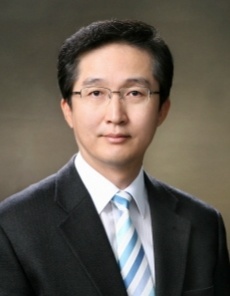Samsung to become leading medical equipment company
To gain a deeper understanding of Asian and especially South Korean innovations in the healthcare market EUROPEAN HOSPITAL visited the 28th Korea International Medical and Hospital Equipment Show (KIMES) on 16 to 19 February. Executive Director Daniela Zimmermann had the opportunity to speak with Jae-Moon Jo, team leader in medical equipment development and Senior Vice President of Samsung Electronics.

Below he outlines how Samsung expects to become one of the world’s leading medical equipment companies by 2020.
What kind of strategic vision do you have for the medical sector of Samsung for the next 10 years?
The medical equipment business will build a new growth momentum for Samsung Electronics. Samsung Electronics expects annual revenue to reach USD $400 billion by 2020. In the health-care sector, Samsung Electronics will achieve revenue of USD$10 billion in 2020 and expects to become one of the 'Big 4' medical equipment companies. To achieve that goal, we will secure global competitiveness in X-ray and ultrasound businesses and expand our business to include other devices such as MRI.
Will Samsung offer more products/systems in the medical technology field to round up the portfolio? And if so, which products will come next?
In terms of ultrasound, Samsung has focused on OB/GYN and mid-range markets, but we will also roll out premium ultrasound, POC device, and various applications within this year. In digital X-ray business, Samsung plans to expand its portfolio with product variants, along with new products launched on KIMES 2012. Samsung's in vitro diagnostics (IVD) will move onto immunoassay and hematology analyzer from clinical chemistry. Particularly, Samsung acquired Nexus in US November 2011, a US company which has cardiac diagnostic solutions. Nexus will launch new products related to cardiac diagnostics and will enhance the competitiveness of Samsung's IVD business.
Will you invest in product development or will Samsung buy other companies to get the portfolio complete?
Samsung Electronics will continue to invest in R&D. However, Samsung always wants to cooperate with companies, organizations, and universities, which have competence, new ideas, and technologies. Following the acquisitions of Medison and Nexus, many companies around the world were interested in cooperation with and investment from Samsung, so we reviewed various business opportunities. We are always open to cooperation, if companies want to achieve synergy from Samsung Electronics' key strengths, including technologies accumulated in CE/IT and global platforms of manufactures and distributions.
There are strong competitors in the market such as Siemens, GE, Philips and Toshiba, but also newcomers like from China. What is the strategy Samsung follows here to compete?
The strategy is very simple. We will focus on unmet needs of our customers. To do so, Samsung will obtain differentiated products and technologies, which allows doctors to diagnose quickly and accurately. Also, we are interested in the safety of patients, so reducing dose in X-ray will be our priority. We believe that Samsung has core competence in this area because the medical equipment sector is going through digitalization and convergence among several technologies. In addition, Samsung is ready to explore various business opportunities to increase innovation. Samsung will take a more strategic approach in future cooperation and investment. Finally, we will leverage the solid business infrastructure of Samsung Electronics around the world.
Which markets does Samsung specifically aim for and how important is Europe?
Samsung operates businesses all over the world. The health-care sector is no exception. Although European economies experience low growth rate these days, the medical equipment market in Europe is the second largest in the world. So, Europe is very important for our business. Therefore we are going to enter the European market this year. Also, the emerging markets, such as China and Latin America, are attractive for Samsung because the average growth rate of the medical device market is between 7% and 10% and because Samsung can contribute to the improvement of their health-care system.
And last but not least: what kind of role do the publishers play in spreading Samsung Strategies?
We believe publishers like European Hospital play a vital role in heralding technological advancements in medicine, and it motivates health medical equipment firms to push the bar higher in technological innovation.
03.03.2012





